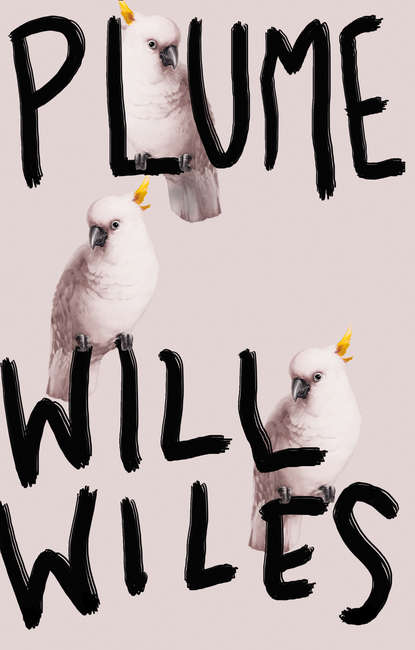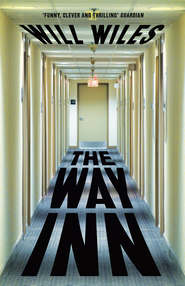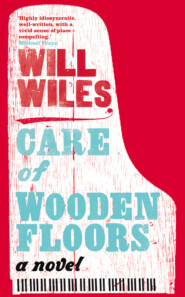По всем вопросам обращайтесь на: info@litportal.ru
(©) 2003-2024.
✖
Plume
Автор
Год написания книги
2019
Настройки чтения
Размер шрифта
Высота строк
Поля
Start late, finish early. Start with a bang. Later, a couple of my colleagues would claim that they heard the explosion. The rest would insist that it was too far away to be heard and that the others were mistaken.
I did not hear it. I felt it. The shockwave, widening and waning as it raced through east London, passed through my chair, through my notebook, through my phone, and through the people seated around the aquarium conference table. As it passed through me – through the acid wash of my gut, through raw, quivering membranes, through the poisoned fireworks of my brain – the wave registered as a shudder. It tripped a full-body quake, a cascade of involuntary movements beginning at the base of my spine and progressing out to my fingertips. These episodes had been getting worse lately, but I knew this was more than the usual shakes: as I felt the wave, I saw it. My eyes were focused on the glass of sparkling water in front of me. I had been trying to lose myself in its steady, pure, radio-telescope crackling. When the shock of the blast reached us, it had just enough strength to knock every bubble from the sides of the glass, and they all rose together in a rush. No one else reacted. No one else saw.
No ripple could be seen in the rectangular black pond of my phone, which was lying on the conference table in front of me. Within it, though, beneath its surface, ripples … But the Monday meeting had rules, strict rules, and my phone was silenced. Really, it should have been turned off, but I knew that it was on behind that finger-smeared glass, awaiting my activating caress.
‘Explosion’ was not my first thought. I guessed that a car had hit the building, or one nearby. These Victorian industrial relics all leaned up against each other, and interconnected and overlapped in unexpected ways. Strike one and the whole block might quiver. But it could have been nothing. Without the evidence of the glass in front of me, I might have believed that I had imagined the shock, or that it had taken place within me, a convulsion among my jangling nerves, and I had projected it onto the world.
Even the bubbles were no more than a wisp of proof that an Event had taken place; they were gone now, and no further indications had shown themselves. None of my colleagues had stirred – they were either discussing what to put in the magazine, or looking attentive. As was I. There were no shouts or sirens from the street, not that we’d hear them behind double glazing six storeys up.
But on the phone, though, through that window … Whatever had happened might now be filling that silent shingle with bright reaction. With a touch, I would be able to see if anyone else had heard, or felt, an impact or quake in east London; I would be able to ask that question of the crowd, and see who else was asking it. And I might be able to watch as an event in the world became an Event in the floodlit window-world – the window we use to look in, not out. It was magical seeing real news break online, from the first hesitant, confused notices to the deluge of report and response. An earthquake, a bomb, a celebrity death. And if you scrolled down, reached back, you could find the very first appearance of that Event in your feed or timeline, the threshold – the point where, for you, the Event began, the point at which the world changed a little. Or a lot. In front of me, in real time, the Event would be identified, located, named and photographed. And the real Event would generate shadow events, doppelhappens, mistaken impressions, malicious rumours, overreactions, conspiracy theories. More than merely watching, I would be participating, relaying what I had seen or heard or felt, recirculating the views of others if I thought they deserved it, trimming away error and boosting truth. Journalism, really, in its distributed twenty-first-century form.
(I sickened as I thought of the Upgrade, the digitisation effort taking place on the floor below, all those features I had written being plucked from their dusty, safe, obscure sarcophagus in the magazine’s archives, scanned, and run through text-recognition software. Soon they would be online. It couldn’t be stopped.)
Being denied the chance to check if an Event was indeed happening felt physical to me, withdrawal layered over withdrawal. The action would be so quick: a squeeze on the power button, dismiss the welcome screen, select the appropriate network from the platter of inviting icons on my home page. I no longer even saw those icons: the white bird of Twitter against its baby-blue background, the navy lower-case t of Tumblr, the mid-blue upper-case T of Tamesis, enclosed in a riverine bend. For something happening in London, Tamesis might be best, the smallest and the newest of those three. It had started as a way of finding bars and restaurants, and prospered on the eerie strength of its recommendations. But it was evolving into much more than that, rolling out new functions and abilities, constantly sucking in data from other networks, informing itself about the city and its users. If there had been a bomb, or a gas explosion, or even a significant car accident, Tamesis would know about it before most people, pulling in keywords and speculation from Twitter and Facebook and elsewhere, cross-checking and corroborating, and making informed guesses – preternaturally informed. Maybe that, really, was twenty-first-century journalism: done by an algorithm in a black box.
With the passing minutes the importance of the vibration diminished, but my desire to escape this room and dive into the messages, amusements and distractions of the phone only strengthened. It was right there in front of me, but inaccessible – Eddie would be greatly displeased. He was relaxed about a lot of things that might bother other bosses, but the no phones rule in the Monday meeting was sacrosanct, and I saw his point. Allow one, just for a second, and everyone would be on them the whole time. But the thought had taken root. Not only was I cut off from the sparkling constellation of others, I was cut off from myself, the online me, the one who didn’t tremor and sicken at 11 a.m. on a Monday morning, the one who charmed and kept regular hours and lived a fascinating life, not this shambles who sweltered in the aquarium. The old image of life after death was the ghost, which inhabited without occupying, and observed without possessing or influencing. But here I was, in this meeting, alive and a ghost. Death, I imagined, would be more akin to being stuck on the outside of an unpowered screen – the world still blazing away there, wherever there was, but imprisoned behind vitrified smoke.
If I could be reunited with that shining soul behind the glass, though, the happy success, not the ailing failure, I could check in with the others – Kay, for instance, sitting across from me but looking at Eddie, as mute and inaccessible as my phone. I could send her a message, see what she had been saying on Twitter, Tamesis, Facebook, Instagram … I doubted there would be anything to see. I greatly preferred the other version of me who would be doing the looking, though, the assurance and charisma of his interactions with others. He had no hands that might shake or knees that might buckle. His visage appeared only behind moody filters, hiding the sweat and pallor. He was always on his way somewhere interesting, not fleeing rooms full of people. What would become of that Jack Bick when this one was finished? I wondered. His was the greater tragedy. He had not brought failure upon himself. How I wanted to be in his company, but how bittersweet I now found those times together. It was like seeing an attractive house from a train window and thinking, Yes, what a fine place to live – and realising that the railway line ran right past its windows, the passing trains full of strangers gawping in. This was the relationship between my online and my offline. The phone is the dark reflecting pool for the monument of the self.
‘Jack?’
Kay was looking at me now, and so was Freya, and so were the Rays, and Ilse, and Mohit and the others. They were all looking at me. Eddie was looking at me – he had spoken.
‘You with us, buddy?’ Eddie said, and some of the others laughed. I forced a smile.
‘Feature profile,’ Eddie continued. Everyone looking.
How must I look to them? I wonder: the thin layer of greasy sweat pushed up by the warmth of the aquarium, the unlaundered shirt over an unlaundered T-shirt, unshowered and unshaved on a Monday morning. Was there odour? The air around me could not be trusted; I feared the tell-tale vapours that might be creeping into it. My index finger was resting on the rim of my glass, where I had been watching for tremors and thinking about the bubbles.
‘Something just happened …’
Thirty or so eyes on me. No one spoke.
‘Did anyone feel that?’
No one spoke.
‘Feature, profile,’ Eddie said. ‘What do you got for us, Jack?’ He enunciated this carefully, savouring the carefully remixed syntax.
The really bad part was that I actually had an answer to this, I was in fact prepared, but I had completely tuned out while Freya was talking, lost in ascending bubbles and the vibrating gulf between the icy crystalline world of the water and me, its observer, a low-voltage battery made by coiling an acid-coated length of bowel around a spine filled with tinfoil and bad cartilage. I searched for the correct page in my notebook, sweat prickling.
‘Oliver Pierce,’ I said.
One of the Rays pulled their head back, an almost-nod of recognition. Ilse appeared to tighten. Kay smiled, though only specialist devices aboard the Hubble Space Telescope could have detected it. The others did not react.
‘The mugging guy,’ Eddie said.
‘Yes, the mugging guy.’
‘He’s been interviewed a lot.’
‘No,’ I said. ‘He was interviewed a lot, when the mugging book came out. But he hasn’t said anything to anyone in years. Not a word. Deleted his Twitter, doesn’t answer emails …’
‘Does he have a book coming out?’
‘No,’ I said, too quickly, a mistake. Then, scrambling to recover: ‘Well, he must have been working on something – when I—’
‘Maybe he’s got nothing to say,’ Eddie said. ‘No book, no hook. How do we make it urgent?’
‘He must have been working on something …’
‘I haven’t even seen any pieces by him lately,’ Freya said. She was as bright-lit as the rest of us, but it was as if she had stepped from the shadows. I had tuned out of the meeting during a lengthy argument about feature lifestyle, her domain. We used to have a food correspondent, but after she left, food was added to Freya’s brief. Freya hated food. Her one idea had been a feature about the next big thing in grains – trying to sniff out the next quinoa, the spelt-in-waiting – which Eddie, Polly and Ilse had united in hating. Boring, impossible to illustrate. It had been a bruising business for Freya, and part of her recovery was to try to make someone else’s ideas and preparation look worse than hers had been. That someone would be me. Every month the flatplan served me up after Freya, a convenient victim if the meeting had gone badly for her. Unless I booked an interview high-profile enough to lead the feature section (not for a while now), feature profile followed feature lifestyle like chicken bones in the gutter followed Friday night.
‘Nothing on Vice,’ Freya continued, ‘nothing in Tank. What if he’s blocked or something?’
Pain, a steady drizzle behind my eyes. The quake visited my right hand, which was resting on the table in front of me, on top of my pen. I stopped it by picking up the pen and making a fist around it. The aquarium air was acrid in my sinuses, impure. What time was it? The Need wanted to know. I had to push on.
‘Isn’t that interesting in itself?’ I asked, emphasising with the pen-holding hand, keeping it moving until the quake subsided. ‘A writer has a smash hit like that mugging book. Big surprise. Awards. Colour supplements. Then, he goes Pynchon. Recluse. Emails bounce. Changes mobile number. Why? Isn’t that worth a follow-up?’
‘But he’s not a recluse,’ Eddie said. ‘He’s talking to you. Why’s that?’
I wished I knew. ‘He must have something to say.’
‘There were loads of interviews when that book came out,’ Freya said. There was brightness in her tone, no obvious malice, but I knew her game. She was trying to smear my pitch. And as she spoke, it was as if I could detect the gaseous content of each word, the carbon dioxide in each treacherous exhalation, subtracting from the breathable air in the room, adding to the fog around me. ‘And besides … A novelist … Not much visual appeal.’ She pursed her lips into a red spot of disapproval.
No one else spoke. Eddie pushed back in his chair. ‘When are you meeting him?’
‘Tomorrow,’ I said. ‘Morning. Tomorrow morning.’
‘Let’s have a back-up,’ Eddie said. ‘I want you to meet Alexander De Chauncey.’
An action took me without my willing it, an autonomous protest from my body. My head fell back and my eyes rolled; my lower jaw sagged; and I made a noise: ‘Euuhhhh …’
Another boss might have regarded this as insolence – it was insolence, after all, a momentary lapse into teenage rebellion, not calculated but real – and hit back hard, but this was Eddie, our friend. He smiled at it. ‘Look, I know you don’t rate the guy …’
‘He’s a prick.’
‘Have you met him? You wouldn’t say that if you met him. Ivan introduced us. He’s actually a great guy. Fun, creative, down-to-earth. An ideas guy.’
‘He’s a fucking estate agent.’
Eddie was away, fizzing with enthusiasm for his own proposal. ‘That’s the angle. An estate agent, but a new breed. Young, hip, creative. Progressive. One of us, you know? Not one of them. He’s got some really amazing ideas. You’ll love him.’
Every particle of my body screamed with cosmic certainty that I would hate him. ‘Maybe next month?’
The change in Eddie’s manner was so slight that perhaps only half the people in the room picked up on it, if they were paying attention: a hardening, a cooling. ‘What, you’re too busy this month?’ A chuckle from the ones who had detected the change in Eddie-weather. ‘Look, it’s win-win, Jack. If your mugging guy pays off we can go large on him and maybe hold De Chauncey for next month. It won’t hurt you to have one in the bag, to get ahead of yourself. If mugging guy is so-so, we do both. If Mr Mugging is a dud, we do De Chauncey. Yeah?’
There was no real question at the end of Eddie’s statement – more a choice between consenting by saying something or consenting by staying quiet. I chose to stay quiet. Eddie turned to his flatplan and struck out six spreads, over which he scrawled PROFILE PIERCE? / ALEX. The spread after this block he put an X through.







